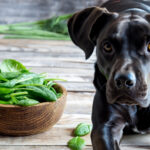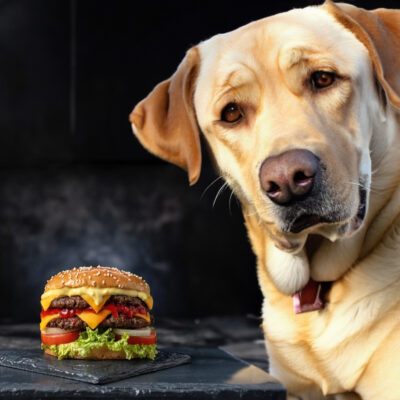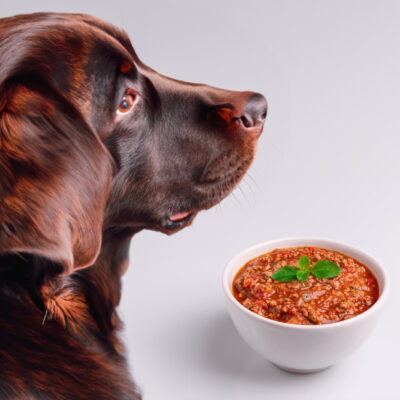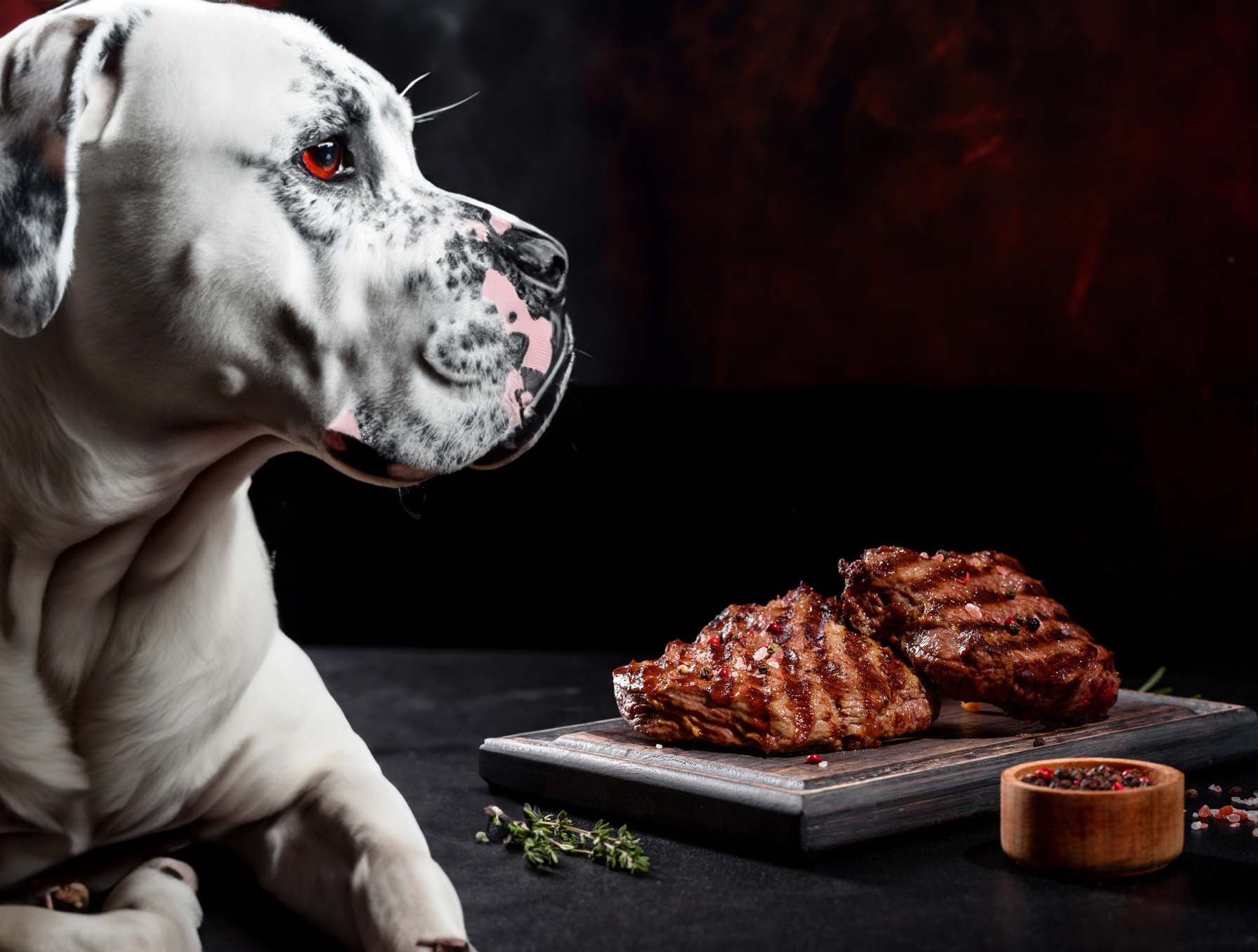If you’ve ever asked yourself, “Can dogs eat ham?”, you’re not alone. Many pet owners have wondered whether it is safe for their pup to indulge in this popular meat. While it’s true that ham is a tasty treat for humans, is it also okay for your four-legged friend? In this blog post, we’ll explore the potential risks and rewards of feeding your pup ham, so you can make an informed decision about whether it’s okay for your pup to pig out on this popular meat.
Why do we ask if dogs can eat ham?
As responsible pet owners, we always want what’s best for our furry friends. And when it comes to their diet, we want to make sure we’re making the right choices. That’s why the question of whether dogs can eat ham arises.
Ham is a popular meat enjoyed by humans, but it’s important to consider that our canine companions have different digestive systems and nutritional needs. While ham may seem like a harmless indulgence, it can actually pose potential risks to your pup’s health.
One of the main concerns is the high salt content in ham. Dogs are more sensitive to salt than humans, and consuming excessive amounts can lead to dehydration, increased thirst, and even sodium poisoning. Additionally, ham is often seasoned with ingredients like garlic or onion powder, which can be toxic to dogs and cause digestive issues or damage to their red blood cells.
Another factor to consider is the high fat content in ham. Dogs have difficulty digesting large amounts of fat, and consuming too much can lead to gastrointestinal upset, pancreatitis, or even obesity. This can put a strain on your pup’s overall health and increase their risk of developing other serious conditions.
So, while ham may be a tasty treat for us, it’s best to err on the side of caution when it comes to feeding it to your four-legged friend. There are plenty of safer alternatives that can still satisfy their taste buds without the potential risks.
The dangers of feeding your dog ham
Ham may be a delicious treat for humans, but when it comes to our furry friends, it can pose some serious dangers. One of the main concerns is the high salt content in ham. Dogs are more sensitive to salt than humans, and consuming excessive amounts can lead to dehydration, increased thirst, and even sodium poisoning. This can be especially dangerous for dogs with underlying health conditions, such as kidney disease or heart problems.
In addition to the high salt content, ham is often seasoned with ingredients like garlic or onion powder. These ingredients can be toxic to dogs and cause digestive issues or damage to their red blood cells. Symptoms of garlic or onion toxicity may include vomiting, diarrhea, weakness, or pale gums. It’s important to note that even a small amount of these seasonings can be harmful to your pup, so it’s best to avoid feeding them ham altogether.
Another danger of feeding your dog ham is the high fat content. Dogs have difficulty digesting large amounts of fat, and consuming too much can lead to gastrointestinal upset, pancreatitis, or even obesity. These conditions can have serious consequences for your pup’s health and well-being.
Overall, the dangers of feeding your dog ham outweigh any potential benefits. It’s best to stick to dog-friendly foods that are safe and healthy for your furry friend.
The benefits of feeding your dog ham
While there are certainly dangers associated with feeding your dog ham, there are also some potential benefits to consider. First and foremost, ham is a good source of protein for dogs. Protein is an essential nutrient that helps to support muscle growth and repair, as well as providing energy. It also plays a key role in the production of enzymes, hormones, and antibodies.
In addition to protein, ham also contains important vitamins and minerals that can contribute to your dog’s overall health. For example, ham is a good source of B vitamins, which are important for a healthy nervous system and the production of red blood cells. It also contains minerals such as iron and zinc, which are essential for a strong immune system and proper functioning of various bodily processes.
Furthermore, ham can be a tasty and enjoyable treat for your dog. Just like humans, dogs appreciate variety in their diet, and giving them a small piece of ham every now and then can be a special treat that they’ll love.
However, it’s important to remember that these potential benefits only apply if ham is fed to your dog in moderation and as part of a balanced diet. Too much ham can still lead to the health risks discussed earlier, so it’s best to use it sparingly as an occasional treat rather than a regular part of their diet. Always consult with your veterinarian before making any significant changes to your dog’s diet or introducing new foods, including ham.
Moderation is key when feeding your dog ham
When it comes to feeding your furry friend ham, the key word is moderation. While there are potential benefits to including ham in your dog’s diet, it’s important to remember that too much of a good thing can quickly become a bad thing.
Feeding your dog ham in moderation means giving them small, occasional treats rather than making it a regular part of their meals. A small piece of ham every now and then can be a special indulgence that your pup will love. It can add some variety to their diet and satisfy their taste buds without posing significant health risks.
To ensure moderation, it’s crucial to consult with your veterinarian before introducing ham or any new food into your dog’s diet. They can provide guidance on portion sizes and frequency to ensure that your pup’s nutritional needs are met while minimizing the potential dangers.
Remember, a balanced diet is key to keeping your dog healthy and happy.
In addition to moderation, make sure your dog is receiving a proper balance of proteins, carbohydrates, fats, vitamins, and minerals from their regular dog food. And always keep an eye out for any changes in your dog’s behavior or health after consuming ham or any other new food.
By practicing moderation and staying informed about the potential risks and benefits, you can make the best decision for your dog’s dietary needs. So go ahead, give your pup a small taste of ham every now and then, and enjoy watching them savor this delicious treat.
Other foods to avoid feeding your dog
When it comes to feeding your furry friend, it’s important to know which foods to avoid to keep them safe and healthy. While ham is a popular concern for pet owners, there are also other foods that you should keep away from your pup. Here are some common foods that you should avoid feeding your dog:
- Chocolate: Chocolate contains theobromine, which is toxic to dogs. Even a small amount can cause symptoms like vomiting, diarrhea, rapid breathing, and even seizures. Dark chocolate and baking chocolate are especially dangerous, so make sure to keep these treats out of reach.
Grapes and raisins: Grapes and raisins can cause kidney failure in dogs, so it’s best to keep them away. Even a small amount can be harmful, so be cautious if you’re snacking on grapes or enjoying a trail mix with raisins.
Onions and garlic: As mentioned earlier, both onions and garlic can be toxic to dogs. These ingredients can cause damage to their red blood cells and lead to anemia. Keep an eye out for any foods seasoned with these ingredients and make sure to avoid them.- Avocados: While avocados are a healthy snack for humans, they can be dangerous for dogs. The persin in avocados can cause stomach upset, vomiting, and diarrhea in dogs. Additionally, the pit can be a choking hazard or cause an obstruction if ingested.
Alcohol and caffeine: It’s important to remember that dogs should never consume alcohol or caffeine. These substances can be extremely toxic to dogs and can cause symptoms like vomiting, diarrhea, increased heart rate, seizures, and even death.
Xylitol: Xylitol is a sugar substitute often found in sugar-free gum, candy, and baked goods. It can cause a sudden release of insulin in dogs, leading to hypoglycemia (low blood sugar). Xylitol ingestion can be life-threatening, so make sure to keep any products containing this ingredient away from your pup.
Macadamia nuts: Macadamia nuts are toxic to dogs and can cause symptoms like weakness, vomiting, tremors, and hyperthermia. Make sure to keep these nuts out of reach, and be cautious if you have them in any baked goods or trail mixes.
Remember, it’s always better to be safe than sorry when it comes to your dog’s diet. If you’re ever unsure about whether a certain food is safe for your pup, it’s best to consult with your veterinarian.










